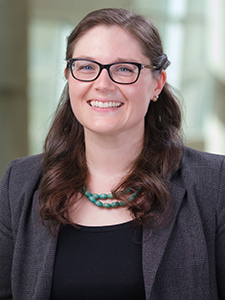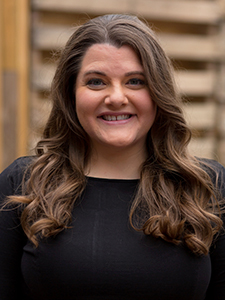- Care Coordination
- Patient Resources
- Diagnoses & Disorders
- Assistive Technology
- Caring for Champions
- Community Engagement
- Education and Child Development
- Genetic Medicine
- integrated Center for Autism Spectrum Disorders (iCASD)
- Applied Behavior Analysis
- Autism Care for Toddlers (ACT) Clinics
- Autism Diagnostic Clinic
- Autism Spectrum Disorders (ASD)
- CARE Program
- Early Intervention
- Virtual Care
- Quick Facts
- Occupational Therapy
- Pediatric Feeding Disorders
- Physical Therapy
- Psychology
- Recreational Therapy
- Severe Behavior
- Speech-Language Pathology
- Warren G. Sanger Human Genetics Laboratory
Community Autism Resource Education (CARE) Program
CARE is a free program for caregivers of individuals with autism spectrum disorder (ASD). Autism experts will respond to caregiver-generated questions through videos, phone calls, email correspondence, or our FAQ section.
This program has been adapted to a completely online format in order to increase access to supports during COVID-19.
CARE is available for Spanish-speaking families. The video presentations and supplemental materials below were adapted to Spanish by Olivia Hernandez Gonzalez, PhD, PLP, LMHP, NCSP and Jessica Gutierrez, BS, CPH.
Learn about
- Symptoms of autism spectrum disorder
- Strategies to support your child’s communication and fine motor skills
- Strategies to increase appropriate behavior and decrease unwanted behavior
- Managing picky and selective eating
- Resources in the community
Meet our presenters
Accessibility: Each video includes captioning -- simply click on the closed captioning (CC) button at the bottom of the video.
|
|
IntroductionVideo Link (1:35) In this video, Michelle McPeck provides an overview of this self-directed program, including ways to connect with the professionals participating in this program. |
|
|
Autism Spectrum DisorderVideo Link (7:59) In this video, Patricia Zemantic, Ph.D, BCBA-D, discusses common symptoms of ASD, differences between medical diagnosis and educational verification, and introduces some common interventions for ASD. Supplemental Materials
|
|
|
Speech, Language, CommunicationVideo Link (5:05) In this video, Leslie Van Winkle, MA, CCC-SLP, describes key components of communication, including speech, language, and communication. She also compares private and school-based speech services, and describes common intervention approaches.Supplemental Materials
|
|
|
Occupational TherapyVideo Link (12:17) In this video, Monica Pleiss, OTD, OTR/L, BCP, describes occupational therapy, compares private and school-based occupational therapy services, and describes common ways occupational therapists support children with ASD.Supplemental Materials |
|
|
BehaviorVideo Link (14:41) In this video, Amanda Zangrillo, Psy.D., BCBA-D, describes the reasons why problem behavior commonly occurs. |
|
|
FeedingVideo Link (7:02) In this video, Laura Phipps, EdS, BCBA, describes typical feeding and help caregivers identify signs to better identify when it may be appropriate to connect with a provider. Supplemental Materials |
|
|
Community ResourcesVideo Link (9:24) In this video, Michelle McPeck, BS, describes a variety of resources available for individuals with ASD. |
Complete a post-program questionnaire.
Submit a question to one of our providers.
Contact Us
If you have any questions, please email Dr. Patricia Zemantic.- Care Coordination
- Patient Resources
- Diagnoses & Disorders
- Assistive Technology
- Caring for Champions
- Community Engagement
- Education and Child Development
- Genetic Medicine
- integrated Center for Autism Spectrum Disorders (iCASD)
- Applied Behavior Analysis
- Autism Care for Toddlers (ACT) Clinics
- Autism Diagnostic Clinic
- Autism Spectrum Disorders (ASD)
- CARE Program
- Early Intervention
- Virtual Care
- Quick Facts
- Occupational Therapy
- Pediatric Feeding Disorders
- Physical Therapy
- Psychology
- Recreational Therapy
- Severe Behavior
- Speech-Language Pathology
- Warren G. Sanger Human Genetics Laboratory









